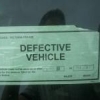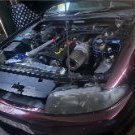Nistune Ecu Gains
Announcements
-
Similar Content
-
Latest Posts
-
But we haven't even gotten to the point of talking about stateless controllers or any of the good stuff yet!
-
You guys need to take this discussion to another thread if you want to continue it, most of the last 2 pages has nothing to do with OP's questions and situation
-
And this, is just ONE major issue for closed loop control, particularly using PID. One such issue that is created right here, is integrator wind up. But you know GTSBoy, "it's just a simple PID controller"...
-
Nah. For something like boost control I wouldn't start my design with PID. I'd go with something that originates in the fuzzy logic world and use an emergency function or similar concept. PID can and does work, but at its fundamental level it is not suited to quick action. I'd be reasonably sure that the Profecs et al all transitioned to a fuzzy algorithm back in the 90s. Keep in mind also that where and when I have previously talked about using a Profec, I'm usually talking about only doing an open loop system anyway. All this talk of PID and other algorithms only comes into play when you're talking closed loop boost control, and in the context of what the OP needs and wants, we're probably actually in the realm of open loop anyway. Closed loop boost control has always bothered me, because if you sense the process value (ie the boost measurement that you want to control) in the plenum (after the throttle), then boost control to achieve a target is only desirable at WOT. When you are not WOT, you do not want the the boost to be as high as it can be (ie 100% of target). That's why you do not have the throttle at WO. You're attempting to not go as fast as you can. If the process variable is measured upstream of the throttle (ie in an RB26 plenum, or the cold side pipework in others) then yeah, sure, run the boost controller closed loop to hit a target boost there, and then the throttle does what it is supposed to do. Just for utter clarity.... an old Profec B Spec II (or whatever it is called, and I've got one, and I never look at it, so I can't remember!) and similar might have a MAP sensor, and it might show you the actual boost in the plenum (when the MAP sensor is connected to the plenum) but it does not use that value to decide what it is doing to control the boost, except to control the gating effect (where it stops holding the gate closed on the boost ramp). It's not closed loop at all. Once the gate is released, it's just the solenoid flailing away at whatever duty cycle was configured when it was set up. I'm sure that there are many people who do not understand the above points and wonder wtf is going on.
-
By joshuaho96 · Posted
This has clearly gone off on quite a tangent but the suggestion was "go standalone because you probably aren't going to stop at just exhaust + a mild tune and manual boost controller", not "buy a standalone purely for a boost controller". If the scope does in fact stop creeping at an EBC then sure, buy an EVC7 or Profec or whatever else people like to run and stop there. And I have yet to see any kind of aftermarket boost control that is more complicated than a PID controller with some accounting for edge cases. Control system theory is an incredibly vast field yet somehow we always end up back at some variant of a PID controller, maybe with some work done to linearize things. I have done quite a lot, but I don't care to indulge in those pissing matches, hence posting primary sources. I deal with people quite frequently that scream and shout about how their opinion matters more because they've shipped more x or y, it doesn't change the reality of the data they're trying to disagree with. Arguing that the source material is wrong is an entirely separate point and while my experience obviously doesn't matter here I've rarely seen factory service manuals be incorrect about something. It's not some random poorly documented internal software tool that is constantly being patched to barely work. It's also not that hard to just read the Japanese and double check translations either. Especially in automotive parts most of it is loanwords anyways.
-






Recommended Posts
Create an account or sign in to comment
You need to be a member in order to leave a comment
Create an account
Sign up for a new account in our community. It's easy!
Register a new accountSign in
Already have an account? Sign in here.
Sign In Now